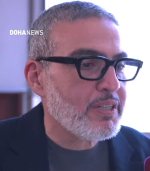
Labour leader Ed Miliband is set to axe shadow cabinet elections in a move which is likely to cause controversy among sections of the party.
Less than a year ago Labour rejected plans to let leaders pick their own frontbench team. But Mr Miliband will formally announce proposals which would scrap the ballot - held every two years in opposition - when the National Policy Forum (NPF) meets this weekend.
The shake-up is likely to be seen as a step to impose his authority on the party.
A senior Labour source said it is time to "move on from the days of the 1980s" and become a "modern, outward-facing organisation". It is hoped the reforms will make Labour look like a party "ready for government" and end the time spent on internal campaigning.
Mr Miliband must first convince his MPs and will address them on Monday at the Parliamentary Labour Party (PLP). He will also ask its chairman, Tony Lloyd, to organise a debate and a vote on the proposals.
The leader is said to be "confident" of winning MPs' support but their vote is "technically indicative" and he will take the plans to Labour's conference regardless of the outcome.
Shadow foreign secretary Douglas Alexander explained Mr Miliband's reasons for proposing the change, telling the BBC: "I think he wants a leadership team for the Labour Party that is focused outwards and not inwards.
"He wants the priority for his shadow cabinet not simply to be talking to each other and the Parliamentary Labour Party, but to be listening and talking to the country as we take the fight to the Conservatives and position ourselves as an alternative Government. There will continue to be mechanisms of accountability."
He claimed it is "a sensible change", adding: "Leadership involves taking decisions you judge are in the best interests of the party."
But Labour MP John McDonnell said he was "really disappointed" by the proposals, adding: "You don't demonstrate strong leadership by having a battle in your own party. You don't need to browbeat your party into submission. What you need to do is set out a direction, convince people you're right and build a team and a consensus - that's strong leadership."
Photo by spannerfilms, Press Association




































